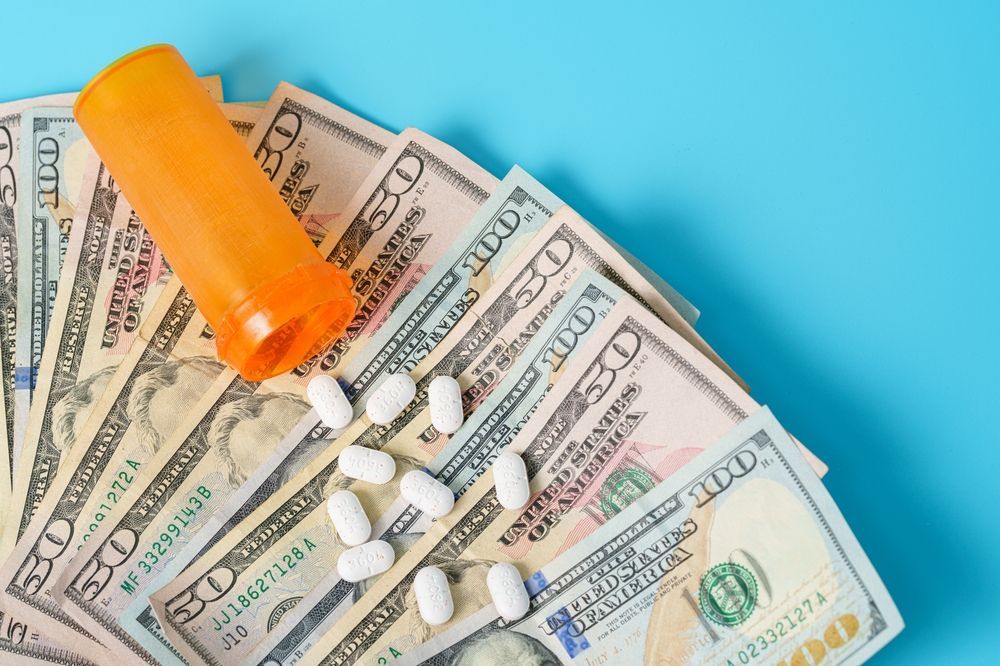Profits Over Cures: Why Americans Don't Trust Big Pharma
Rick Westerdale • September 29, 2025

Polls show that a clear majority of voters believe drug companies profit more from managing disease than curing it. That isn’t cynicism; it’s an accurate read of the incentives we’ve built. Voters also say, by wide margins, that drug prices are too high and that profits are the main driver. In a February/March national survey, three in five voters blamed drug-company profits as the top reason for high prices, and nearly two-thirds named drug companies as most responsible among eight options. Support for action is broad and bipartisan.
Consider diabetes. Insulin’s discoverers sold the patent for $1 because they believed it belonged to humanity. A century later, the average 30-day supply in the commercial market climbed from about $271 in 2012 to roughly $499 in 2021, nearly doubling, before only modest recent relief at the list-price level. One vial of Humalog that cost $21 in 1999 was $332 by 2019; a 1,000% increase. Those numbers aren’t abstract: they translate into rationing, ER visits, and amputations.
The market keeps signaling exactly the wrong lesson. When science actually cures, Wall Street shrugs or punishes. Gilead’s once-and-done hepatitis C breakthroughs were a miracle for patients, and a revenue cliff for investors as sales declined sharply in subsequent years. That experience sent a clear message to boardrooms about the “economics of cures.”
Meanwhile, cancer care shows the opposite incentive structure: an expanding, high-margin annuity. The U.S. spent almost $100 billion on cancer medicines in 2023, and oncology is a leading engine of overall drug-spending growth. Innovation here can be lifesaving, but the financial model rewards long-tail maintenance and incremental survival gains at eye-watering prices. Patients feel it; payers feel it; voters see it.
So the trust gap is not a messaging problem; it’s an incentives problem. Only about one in ten Americans believes that Big Pharma puts patients over profits, a finding that has echoed for years. In parallel, roughly eight in ten Americans across parties say company profits are a “major factor” in high drug costs. And when asked what to do, overwhelming majorities want Congress to act—supporting, for example, robust Medicare negotiation and price-reasonableness standards.
If you want to understand why frustration keeps building, follow the dollars. Net U.S. medicine spending jumped 11.4% in 2024 to an estimated $487 billion, driven by a relatively small set of high-growth brands. Independent watchdogs routinely flag “unsupported” price hikes that add hundreds of millions in cost without new clinical evidence. This is not how you earn public trust.
The political center of gravity has already moved. Recent polling shows approximately 9 in 10 voters, including strong majorities of Republicans, say drug prices are too high and back aggressive cost-down measures. Voters aren’t anti-science; they’re anti-rent-seeking. They’ll reward companies that deliver cures, and they’ll back policies that realign incentives when companies don’t.
Here’s the practical alignment agenda: tie taxpayer-funded research benefits to affordability commitments; expand outcome-based contracts that pay more for durable remissions and cures and less for marginal benefit; accelerate transparent reference pricing and competitive tendering where appropriate; and require pricing and clinical-value disclosures when companies take increases above inflation without new evidence. None of that is anti-innovation. It’s pro-results. The Institute for Clinical and Economic Review shows how often hikes outpace value; policy should make that the exception, not the rule.
We also need to normalize the idea that curing a disease should be a great business. Platform science, such as cell and gene therapies, radioligands, new delivery modalities, ought to make cures financially attractive, not career-limiting events for CFOs. If we reward elimination of disease burdens with premium, time-limited payments and fast, fair access, the pipeline will tilt toward eradication instead of endless management.
None of this requires vilifying scientists or halting discovery. It requires insisting that the business model serve the mission. And voters are already there. They want an industry paid for outcomes they can see and afford, not ever-longer product lines and ever-higher launch prices. If pharma wants to rebuild trust, the path is simple, if not easy: prove that success means fewer sick people, not just fatter quarterly guidance. Until then, skepticism will deepen; and with it, the appetite for sharper tools.
Rick Westerdale has more than 30 years of experience across the federal government as well as in the global energy industry. As a Vice President at Connector, Inc., a boutique government relations and political affairs firm based in Washington, D.C., Rick advises clients on strategy, investment, and policy across healthcare, hydrocarbons, LNG, hydrogen, nuclear, and the broader energy transition.
